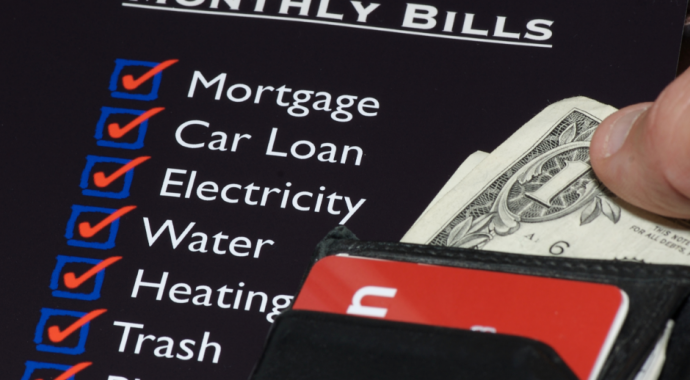
Spending is an important element of Budgeting. Many people don’t have the habit of properly controlling their expenses and paying bills late, dealing with interest rates and worse, contracting debt over the long haul.
There is a simple way to keep your Spending habits upfront and your expenses controlled.
Understanding Your Expenses
Expenses can be classified into two categories: Fixed and Discretionary.
Fixed expenses are those costs you constantly have every month. Your needs. The minimum you have to get by. They don’t disappear if you are unemployed. For instance, they are:
- Rent or mortgage payments
- Utilities
- Food
- Transportation to/from work
- Health Insurance
- Child support
- Prescriptions
Discretionary expenses are also known as your wants. Things you have because you want to improve your lifestyle, such as:
- Gym membership
- Cable TV
- Clothing
- Entertainment
- Eating out
- Personal grooming
- Home Decor
Once you identify your expenses, write them down on a notebook or a spreadsheet and check their average total. The amount is your monthly expenses. Important: make sure your total expenses don’t surpass your Income.
How to create Good Spending Habits
First of all, pay your bills on time. Then, there are certain tricks to help you keep your expenses under control.
Coupons, rebates and sales always lead to lower spending.
Another important tip is to try downsizing your bills. Negotiate a better rate for your discretionary expenses such as memberships or services. The same strategy can be applied to your rent or mortgage fee. Control the usage of your utilities.
One of the villains in spending is the food category. Our grocery shopping usually becomes a “fun trip.” We end up buying more than we need or things that are not a priority for the sake of buying or indulging ourselves. If you have kids, that’s a warning zone. Ensure they understand beforehand what they can and can’t ask for in the supermarket.
Control Your Spending Emotion
Believe it or not, our emotions are responsible for our spending habits in a way. Psychologists studied the mind and the positive or negative effects that a purchase has on our mood, body, and mind.
Our mindset towards spending can change in a heartbeat. It is so easy to grab your credit card and buy that bottle of wine or that dress to make yourself happy after a bad day at work. However, this simple act can cost you a lot of it becomes regular. There are excellent tips to deal with the emotional aspect and its influence on spending. Deborah Fowles says, “Understanding why you spend the way you do is a step in the right direction. When you know the psychology that motivates your financial decisions, making the right spending choices becomes easier.” (Source: The Psychology of Spending Money). She also has some preliminary tips on how to control your emotions and don’t go overboard.
Debt - The Unavoidable Word
It’s unwise to talk about expenses without mentioning debt. There are many reasons why we spend our money and, eventuality, find ourselves in a debt snowball situation.
Credit cards, emotions, peer pressure are all components that affect our financial habits and spending. Not all debts are bad, though. So long as the debt is within the budget limits, costs like leasing a new car or mortgage payments are considered good debt because they will provide an increase in your assets in the future. The impulse purchase, the various credit cards and the amount of advertising we receive daily are the stimuli that worry most, and that can lead you to a pile of debt.
To understand a bit more about the impact of debt on your Spending, check this article <link to Why it is important to have no bad debt> on our website and some tips from The Balance - Good Debt vs. Bad Debt.
Make your money works towards a goal. The least you spend on unnecessary items, the more you will save to achieve your dreams and live financially comfortably.
